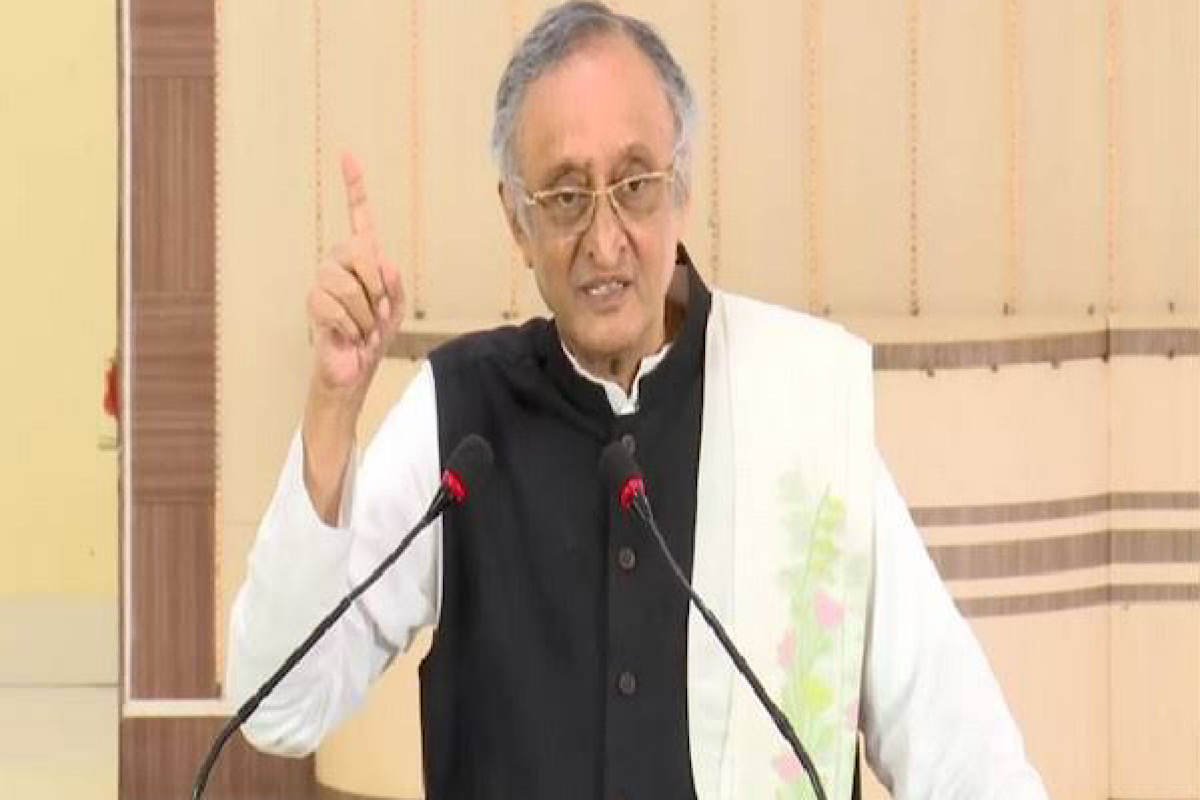CM loses balance inside chopper, completes rally at Kulti
Chief minister Mamata Banerjee met with a freak accident while boarding her helicopter in Durgapur today.

Former Finance Minister of West Bengal, Amit Mitra (Photo:ANI)
Former Finance Minister of West Bengal, Amit Mitra, who is now Principal Chief Advisor to West Bengal Chief Minister Mamata Banerjee has said that the state government will announce a number of policy decisions during the annual Bengal Global Business Summit (2023), scheduled to take place in November. Both the Chief Minister and the former Finance Minister have reiterated, frequently over the past decade since it came to power in 2011, that Bengal’s reputation as “anti-industry” is unfortunate and a misrepresentation of the ground reality. In fact, Mitra has pointed out that the state’s gross domestic production has risen manifold since the fiscal year 2010-2011 (the final year of the CPIM-led Left Front government) which was Rs 4.5 lakh crore. He said that the projected GDP of the current fiscal year is Rs 17 lakh crore.
Of course the state’s “anti-industry” reputation has stuck since before the Trinamool government came to power when Banerjee and her party, then in the opposition, led a farmers’ agitation in Singur against the then government’s takeover of 1000 acres of prime farmland for the setting up of a Tata Motors’ car factory. After a long standoff which lasted nearly four years, between Trinamool and the then Left government which had invited Tata Motors to set up the factory, Tata Motors’ Chairman Ratan Tata announced that the atmosphere was not conducive to set up industry and that he was was closing shop even before it began.
Though it was a victory for Mamata, ever since she came to power, she has found it difficult to shake off the tag of being against industry. Didi has, however, explained, “Trinamool is not against industry but it should not come at the cost of agriculture or environment.” She used an example of industry and agriculture being like twins, naming them “hanshi” (which means ‘laughter’) and “khushi” (which means happiness). They should co-exist harmoniously, she has said.
Advertisement
“Didi has an extremely balanced view as far as industry and agriculture is concerned,” said a Trinamool source. “Industry will never come at the cost of environment.” Immediately after coming to power Trinamool had announced its “industry policy” which ruled out the forceful governmental or industrial takeover of farmers’ land and made it compulsory for the industrialists to take the consent of each and every farmer who owned land in a particular site before setting up their factories.
“This posed a huge problem for the industrialists and further drove home the ‘anti-industry’ reputation,” says Biswanath Chakraborty, political analyst. “Because large tracts of the land which is required by industrialists to set up factories is, in Bengal, not owned by individual farmers, as in some other states. Since the days of the Left Front government, when land reforms were introduced in the state, agricultural land was divided into smaller units and distributed amongst farmers so that everyone could own plots of land to cultivate. This means that when an industrialist want to set up a factory he or she is going to have to speak to and take the permission of all the farmers who own the land which could be as few as ten or as many as a hundred.”
According to Mitra, certain “policy decisions” would be announced during the November Summit which are aimed at facilitating investment and making investing in Bengal an attractive option.
Advertisement